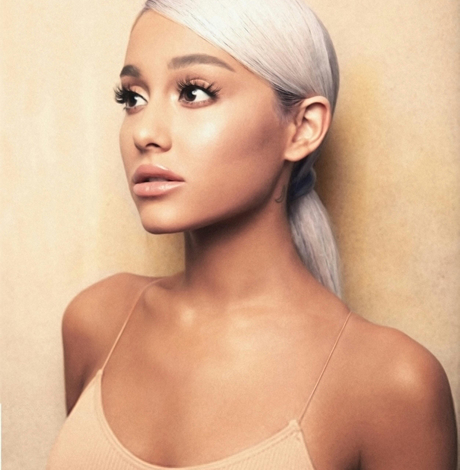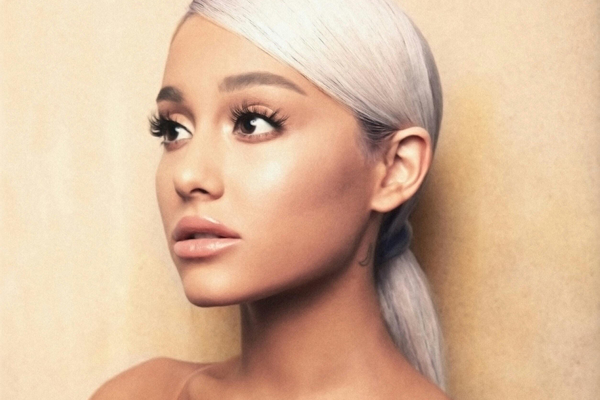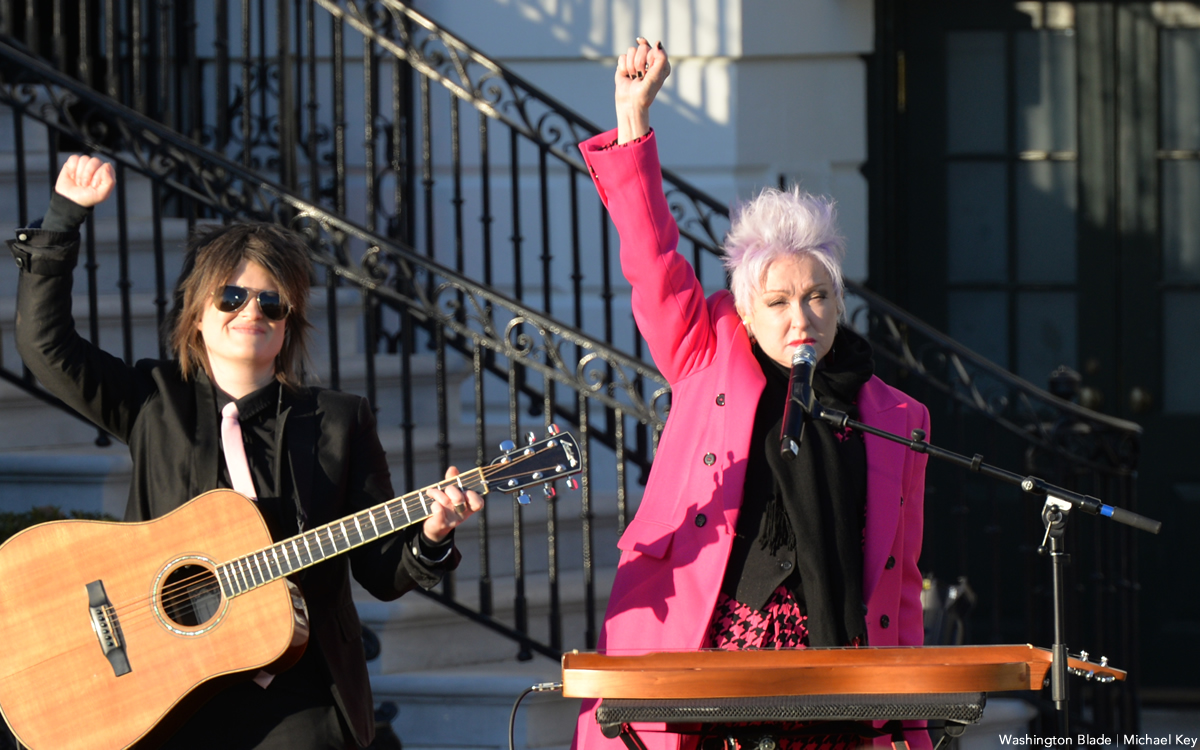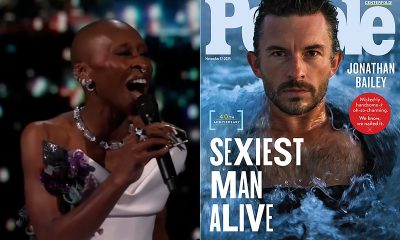Music & Concerts
New Ariana Grande album ‘Sweetener’ is fun, daring
Non-stop dance-pop fun ensues after Pharrell-produced opening set


Ariana Grande continues her pop domination on her fourth album ‘Sweetener.’ (Photo courtesy Republic)
It would hardly be an understatement to say Ariana Grande is the biggest phenomenon in pop music right now. At 25, she has already landed two albums at the Billboard no. 1 spot, as well as a third at no. 2, and the number of her monthly listeners on Spotify is approaching 40 million. She has also regularly collaborated with other artists, including several songs with Nicki Minaj and the recent single “Dance to This” with Troye Sivan, from his upcoming album “Bloom.”
Her fourth studio album, “Sweetener,” which debuted at no. 1 on iTunes, is in large part a return to familiar themes of love, sex and romance, and the singer continues to bring her vocal A-game. But it’s also Grande’s first major release since her 2017 Manchester concert was the target of a terrorist attack.
In contrast to “Dangerous Woman” (2016), which featured hits “Into You” and “Side to Side,” the new record takes a more reflective tone. It prefers a sample-heavy, often futuristic-sounding R&B to the straightforward dance-pop sound of earlier hits like “Break Away.” It’s a sophisticated album that is both provocative — see the single entitled “God is a woman” — and irresistibly likeable.
With the exception of the short introductory track entitled “raindrops (an angel cried),” the first several songs were written and produced by rapper Pharrell Williams, who collaborated with Grande on several tracks which turn out to be the album’s most experimental.
The song “blazed” (featuring Williams) has a strange, uptempo bass and percussion groove with otherwise sparse instrumentation. Over the percussion-heavy accompaniment, Williams relies on his falsetto while Grande sings with a robust ‘90s R&B sound. The following track, “the light is coming” (featuring Nicki Minaj), is another somewhat odd track that relies on highly repetitive samples.
The first several songs feel like yawn and stretch, a sort of warmup for the rest of the album, which truly hits its stride with “R.E.M.” And once it gets going, it doesn’t miss a beat.
“R.E.M” has a sexy R&B/rap sound, reminiscent of artists like Frank Ocean. This, in turn, is followed by “God is a woman,” released as the album’s second single. The song cleverly employs sacred language to talk about profane, sensual things. But there is no ambiguity when Grande sings in her sensuous soprano, “When all is said and done/You’ll believe God is a woman.”
The record’s title number is a cheery, R&B-infused pop track. It’s an interesting place from which to draw the album’s title, which could have just as easily been “no tears left to cry” or “God is a woman.” It’s neither the best written nor the most powerful song on the record. What it captures, however, is a certain defiant optimism that runs through the music. After the tragedy in Manchester, Grande is chin-up, looking at the brighter side of things.
The album’s lead single, “no tears left to cry,” deals explicitly with the need to move on after a tragedy: “Ain’t got no tears left to cry/So I’m pickin’ it up.” The song is one of several collaborations between Grande and Swedish songwriters ILYA and Max Martin, who also produced the multi-platinum lead single “Problem” from her sophomore album. “no tears left to cry” shares a similar musical feel that is as warm as it is methodical. The collaboration is an unsurprising pick for the lead single, and the formula appears to have worked again: the music video is just shy of 500 million views on Youtube.
There are so many good songs on the album that it’s almost hard to choose favorites — “better off,” “everytime” and “goodnight n go” are all solid contenders. The song “breathin,” which deals with anxiety, is another well-crafted and catchy collaboration with ILYA. One thing, however, is clear: “Sweetener” is album from an artist at the height of her powers, a pop diva for a new generation.
Music & Concerts
Washington chorale kicks off Christmas with vibrant program
‘Thine Own Sweet Light’ concerts planned

The full Washington Master Chorale will return for its annual holiday concert tradition with “Thine Own Sweet Light” on Friday, Dec. 19 and Sunday, Dec. 21 at St. Ann’s Catholic Church (D.C.) and Church of the Epiphany (D.C.).
The concert will feature the rich sounds of the 50-voice, a cappella chorus performing lush, seasonal choral music inspired by the theme of light. Highlights include Edvard Grieg’s “Ave Maris Stella,” Eric Whitacre’s “Lux Aurumque,” and Christopher Hoh’s “Holy, Holy, Holy is the Lord God of Hosts.” The program will also present a new work by Barcelona composer Josep Ollé i Sabaté, along with charming holiday folk songs and seasonal favorites.
For more details, visit the Washington Master Chorale website.
Music & Concerts
Queer mega stars (and allies) ready to take D.C. stages this fall
Watch LGBTQ icons light up stages across the DMV as they sing, dance, and drag their way through spectacular shows.

One of the best ways to welcome fall is by catching LGBTQ performers (and their allies) lighting up some of the D.C. area’s biggest stages. From country and pop to drag and rock, the season is packed with shows you won’t want to miss.
Maren Morris – The country, rock, and pop diva—known for hits like “The Bones” and for standing up against Nashville’s anti-LGBTQ voices—takes the stage at Wolf Trap (1551 Trap Rd, Vienna, Va.) on Friday, Sept. 12 at 8 p.m. Tickets start at $64.
RuPaul – The mother of modern drag and host of “RuPaul’s Drag Race” will spin a DJ set at Echostage (2135 Queens Chapel Rd NE) in Northeast D.C. on Sept. 20. Before RuPaul swaps wigs for headphones, Trade and Number 9 owner Ed Bailey will warm up the decks. For tickets and details visit echostage.com.
Conan Gray – The queer pop prince, celebrated for his Gen Z anthems like “Heather” and “Maniac,” brings his Wishbone Pajama Show to EagleBank Arena in Fairfax, VA, (4500 Patriot Cir) on Sept. 20 at 8 p.m. Tickets start at $113. For more info visit shop.conangray.com/pages/tour.
All Things Go Music Festival – With a lineup that includes Noah Kahan, Lucy Dacus, Kesha, Clairo, Doechii, and more, the beloved LGBTQ-friendly festival takes over Merriweather Post Pavilion (10475 Little Patuxent Pkwy, Columbia, Md.) Sept. 26–28. For tickets and details visit allthingsgofestival.com.
BERTHA: Grateful Drag – This unique tribute brings drag artistry and the sounds of the Grateful Dead to The Atlantis (2047 9th St NW) on Sept. 27. Tickets start at $47 at theatlantis.com.
Peach PRC – Rising Australian pop star and out lesbian, whose confessional tracks like “Perfect for You” and “Forever Drunk” have made her a queer TikTok darling, performs at The Atlantis on Sept. 29 at 6:30 p.m. The show is general admission only. Additional details are on theatlantis.com.
Addison Rae – The TikTok star-turned-pop princess, who’s crossed over into music with glossy hits like “Diet Pepsi” brings her sold out show to The Anthem (901 Wharf St., S.W.) on Sept. 30. Tickets are sold out, but resale options start around $80. For more info visit theanthemdc.com.
The Rocky Horror Picture Show 50th Anniversary – Celebrate the cult classic that’s been a queer midnight-movie staple for decades, with Barry Bostwick (a.k.a. Brad Majors) at the Warner Theatre (513 13th St., N.W.) on Oct. 2 at 8 p.m. Tickets start at $41 via Ticketmaster.
Chaka Khan, Patti LaBelle, Gladys Knight & Stephanie Mills – Four legends, one stage. Between Khan’s funk, LaBelle’s soul, Knight’s R&B, and Mills’ powerhouse vocals, this concert at Capital One Arena (601 F St NW) on Oct. 3 at 8 p.m. promises pure diva magic. Tickets start at $103. For more details visit capitalonearena.com.
Lorde – Joined by The Japanese House and Chanel Beads, the Grammy-winning New Zealand singer-songwriter behind “Royals” and “Solar Power” returns to The Anthem on Oct. 4 at 7 p.m. Lorde has long been embraced by queer fans for her dreamy pop and subversive lyrics. For more info visit theanthemdc.com.
Andy Bell (of Erasure) – The British queer rock icon, best known for synth-pop classics like “A Little Respect” and “Chains of Love,” brings his Ten Crowns Tour to the Lincoln Theatre (1215 U St., N.W.) on Friday, Oct. 17 at 8 p.m. Tickets are $90.45.
Doechii – The self-described queer “Swamp Princess”—and WorldPride 2025 headliner—continues her breakout year with the Live from the Swamp Tour at The Anthem on Oct. 21 at 8 p.m. Known for blending rap, R&B, and avant-garde performance art, Doechii is one to watch. Tickets start at $153.
Neon Trees – The out-and-proud Utah rockers behind “Everybody Talks” and “Animal” perform at the Lincoln Theatre on Friday, Oct. 24 at 8 p.m. Lead singer Tyler Glenn, who came out publicly in 2014, has become a strong queer voice in alternative rock. For tickets and info visit impconcerts.com.
Sasha Colby – The “RuPaul’s Drag Race” Season 15 winner strips down on the Stripped II Tour at the Warner Theatre on Nov. 2 at 8 p.m. Tickets available now on Ticketmaster.
Lola Young – The bisexual indie-pop sensation, whose raw songwriting has earned her millions of TikTok fans and multiple chart soaring hits visits The Anthem on Nov. 9 at 8 p.m. Tickets are still available.
Opera Lafayette
Featuring Mary Elizabeth Williams as Dido
+ Elijah McCormack, Chelsea Helm
Oct. 16, 7:30 p.m.
Sixth & I
PostClassical Ensemble
The Pale Blue Do: A Musical Voyage Inspired By Nature
Featuring National Geographic’s Enric Sala, Guest Curator
Wednesday, November 19, 7:30 p.m.
Terrace Theater
Washington Concert Opera
Starring Kate Lindsey, Theo Hoffman, John Moore, and Fran Daniel Laucerica
Nov. 23, 6 p.m.
Lisner Auditorium
Washington Master Chorale
An intimate a capella concert taking place in an architectural jewel, featuring cherished choral gems from Anglican and Catholic tradition and early American hymns. The concert will also present the world premiere of Christopher Hoh’s Holy, Holy, Holy is the Lord God of Hosts, and hymn singing featuring Robert Church, organist and choirmaster at St David’s.
Oct. 18, 7:30 p.m.
October 19, 5 p.m.
St. David’s Episcopal Church
Music & Concerts
Cyndi Lauper ready to have fun in Virginia
Superstar to bring final leg of farewell tour to Jiffy Lube Live

Superstar Cyndi Lauper will bring the final leg of her farewell tour “Girls Just Wanna Have Fun” to Bristow, Va., on Thursday, July 24 at Jiffy Lube Live.
Lauper’s international Farewell Tour – her first major headlining run in a decade – kicked off in North America last October, and included her first time ever headlining (and selling out) Madison Square Garden. Lauper’s performances have earned raves from the New York Times, Rolling Stone, Billboard, and many more, and surprise guests have included Chaka Khan, Sam Smith, and Hayley Williams. The tour just visited the U.K. and Europe, and will head to Australia and Japan in April.
Tickets are available on Live Nation’s website.
-

 State Department5 days ago
State Department5 days agoFOIA lawsuit filed against State Department for PEPFAR records
-

 Opinions5 days ago
Opinions5 days agoTrans sports bans rooted in eugenics
-

 New York5 days ago
New York5 days agoPride flag raised at Stonewall after National Park Service took it down
-

 India5 days ago
India5 days agoTrans students not included in new India University Grants Commission equity rules




















